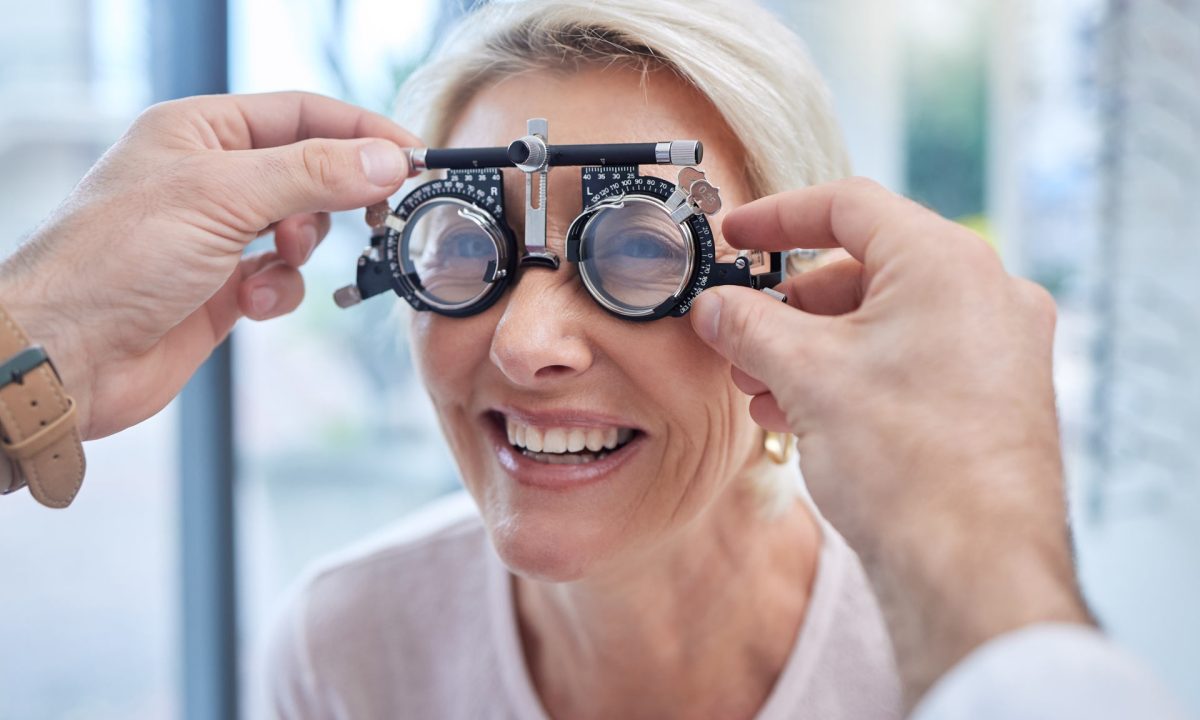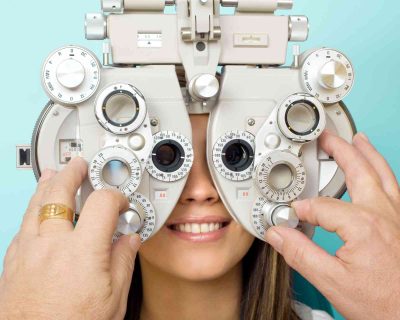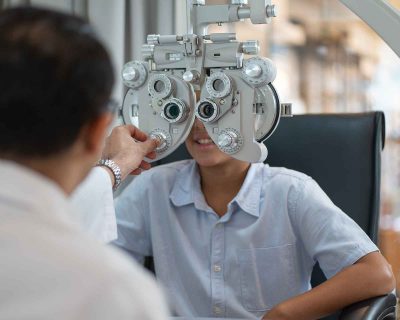
Eye Exams for Seniors: What to Expect from an Optometrist
As we age, our vision can change, and age-related eye conditions can develop. Regular eye exams from an optometrist are essential for maintaining good vision and detecting these conditions early on. When seniors visit an optometrist for an eye exam, there are certain things they can expect. The exam will typically involve a review of their medical history, visual acuity and refraction testing, an eye health evaluation, and a discussion of treatment options if necessary. Understanding what to expect during an eye exam can help seniors feel more comfortable and prepared, and can also help them maintain good eye health as they age. With that being said, here are some of things that seniors should expect for their next eye exam with an optometrist.
Review of Medical History
Seniors should anticipate that their optometrist will go through their medical history while doing an eye exam since it might reveal important details about any current diseases or prescriptions that could impair their vision. The health and vision of the eyes can be significantly impacted by a wide range of medical diseases, including diabetes and hypertension. Additionally, certain drugs might have adverse effects that impair vision, such dry eyes or hazy vision. The optometrist can discover any potential risk factors or underlying issues that may need to be addressed during the eye exam by going through a senior’s medical history. For instance, if a senior has a history of diabetes, the optometrist will be particularly alert for symptoms of diabetic retinopathy, which, if ignored, can cause vision loss. The optometrist will also look for indications of ocular hypertension or other blood pressure-related eye disorders if a senior is taking medication for high blood pressure. The optometrist may also better cater the eye exam to the needs of each senior by analysing their medical history. For instance, the optometrist may do extra tests to screen for glaucoma if a senior has a family history of the disease.
Visual Acuity Testing
Seniors should anticipate their optometrist doing visual acuity testing during an eye exam since it is an essential step in determining general eye health and locating any potential vision issues. Visual acuity testing is a routine process in all eye exams that evaluates a person’s ability to see objects well from a distance and up close. Seniors should have their visual acuity tested more frequently since ageing-related changes to the eyes can impair their ability to see well. Many elderly people endure vision changes, such as a decline in visual acuity, which can affect their everyday activities including reading, driving, and identifying people. The optometrist can determine whether any refractive errors, such as nearsightedness, farsightedness, or astigmatism, are present by performing a visual acuity test. If necessary, this data is used to calculate the right prescription for corrective lenses, such as glasses or contact lenses. Testing for visual acuity is crucial for detecting any age-related eye disorders that could exist, such cataracts or macular degeneration. These disorders may call for additional testing and treatment by a professional and may result in a loss in visual acuity.
Refraction Testing
Refraction testing should be completed by the optometrist during the eye exam since it is crucial to obtaining the right lens prescription for corrective lenses. Seniors should anticipate this. Refraction testing determines how much a person is nearsighted, farsighted, or astigmatic, which impairs their ability to see well. The degree of nearsightedness, farsightedness, or astigmatism may alter as we age due to changes in the shape of the eye. Therefore, recognising these changes and adjusting the lens prescription as necessary need refraction testing. Refraction testing can find additional underlying issues that may be influencing eyesight in addition to recognising changes in vision. For instance, in those with diabetes, elevated blood sugar levels can alter the eye’s lens, resulting in abnormalities to vision. Such alterations can be recognised by refraction testing, which can also trigger additional assessment and therapy, if required. Seniors are more prone to have visual changes brought on by ageing, such as cataracts and presbyopia, which limit one’s ability to focus on close objects. Seniors should thus undergo refraction testing to ensure that their corrective lenses are suitable for their present level of vision and to identify any changes that may call for further testing.
Eye Health Evaluation
For various reasons, seniors should anticipate their optometrist doing an eye health review while performing an eye checkup. First of all, as people age, they are more prone to a variety of eye problems and diseases that can seriously impair their eyesight and general health. An eye health examination can assist in seeing any possible problems before they develop into significant ones, enabling early treatment and better results. Second, many age-related eye diseases, including cataracts, glaucoma, and macular degeneration, may manifest no symptoms at first. Regular eye exams can identify many diseases before symptoms emerge, improving the effectiveness of therapy and preventing future harm to the eyes. Moreover, a thorough examination of your eyes’ health may reveal further medical issues that might be harming them. For instance, abnormalities in the eyes might be found during an eye exam if you have diabetes or high blood pressure. Early detection of these disorders can result in quicker treatment and improved health management. Finally, a comprehensive eye examination can offer crucial information to seniors who may be thinking about surgery or other medical operations. Medical practitioners can make better judgements regarding possible hazards and treatments by having accurate information about the eyes.
Discussion of Treatment Options
When performing an eye exam for a senior, optometrists should finish a discussion of treatment choices since it’s crucial for them to be aware of any potential vision or eye health issues and the range of available solutions. Age-related eye problems such cataracts, glaucoma, and macular degeneration grow increasingly common as people become older. To stop additional vision loss and preserve excellent eye health, it is essential to identify and treat these disorders as soon as possible. The optometrist will inspect the eyes during an eye exam for any indications of these problems and go through any potential treatment options if any are found. Prescription drugs, corrective lenses, or referral to a specialist for additional testing and treatment are some examples of these therapeutic possibilities. Seniors may also endure age-related vision changes including presbyopia, a typical eye alteration that makes it challenging to focus on close objects. The optometrist may go through possible treatments for this, such as bifocals or progressive lenses, which can help seniors see properly at various distances. Seniors may also have additional underlying medical issues that might harm their eye health. The optometrist will explain any potential treatment choices that could be impacted by these problems after taking this into account.
Eye exams are important for all ages, especially for seniors. It is important that they complete their regular check-up with an optometrist to avoid any eye vision problems that may affect their overall health. When going to an eye exam, seniors must expect that their optometrist will complete a review of their medical history, a visual acuity test, a refraction test, an eye health evaluation and a discussion of treatment options. If you have further questions about eye exams or your eyes’ health, talk to your local, trusted optometrist today.




